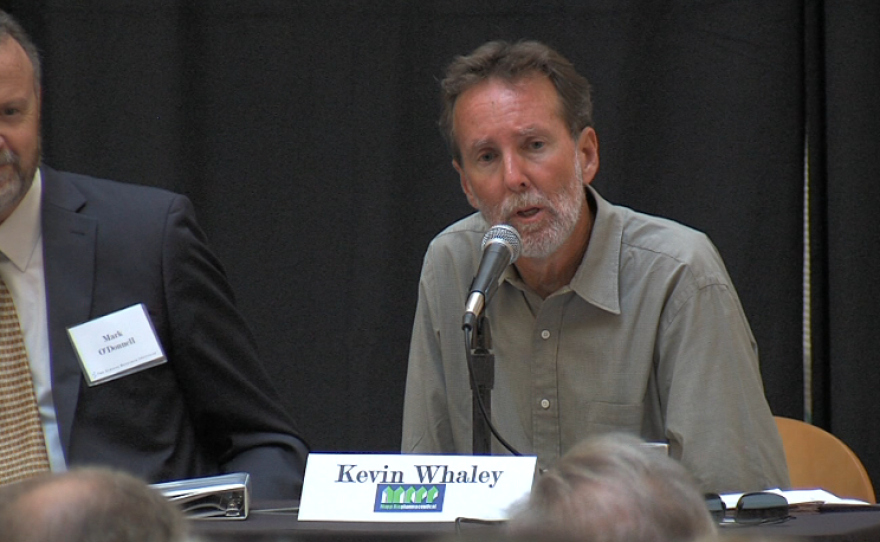Related stories
• Ebola Is Rapidly Mutating As It Spreads Across West Africa
After weeks of shying away from the news media, the head of a small San Diego company came forward Wednesday to publicly discuss his company's experimental Ebola drug ZMapp.
"We've been keeping our heads down," said Kevin Whaley, CEO of Mapp Biopharmaceutical, appearing in La Jolla at an event put on by the Scripps Research Institute.
ZMapp has been donated to a handful of patients in West Africa's ongoing Ebola outbreak, the deadliest on record. Two recipients have died. But others have pulled through, including two American missionaries.
Seeing Dr. Kent Brantly and Nancy Writebol walk out of Emory University Hospital last week "was certainly very satisfying," said Whaley. But he remained skeptical as to whether the drug helped them recover. "Hopefully ZMapp played some role in that. But that remains to be seen."
ZMapp is a cocktail of antibodies grown in tobacco leaves, and Whaley said harvesting more will take months. He said increased government support is helping to scale production for possible clinical trials.
"We are definitely getting more funding," Whaley said, declining to specify which government agency provided the new funding. "The intent of everyone is to go towards a clinical trial so we can determine if it's safe and effective."
ZMapp had never been tested in humans before Mapp was contacted about providing it on a "compassionate use" basis. Even though the drug remains unproven, some observers have questioned why it's been given mostly to Westerners when the vast majority of Ebola patients are Africans.
Whaley said decisions about who got the drug were largely out of his hands.
"The process is quite rigid," he said. "The practicing physician has to contact the FDA, and the FDA contacts us. We cannot export any experimental drug to any country."
As an early-stage experimental drug, very little ZMapp existed before the outbreak. Questions remain about how much is left. Earlier this month, Mapp issued a statement saying supplies had run out. Yet this week news broke about ZMapp being used to treat another patient, this time a British nurse.
"These are fragments of treatment courses," said Whaley, suggesting the British nurse could be receiving leftovers from a three-dose course not completed in another patient.
Studies in primates show ZMapp's effectiveness wearing off when given more than three days after infection. Whaley did not know exactly how long it took for each patient to receive ZMapp after being infected. Whaley admitted it was "surprising" to see Dr. Brantly recover after taking ZMapp more than a week into his infection.
Whaley also took the opportunity to dispel misinformation in early reports about ZMapp.
"It's not a secret serum," Whaley said. "It's from a class of drugs that are fairly well characterized. So there's some reason to believe they might be safe and they might be efficacious."







